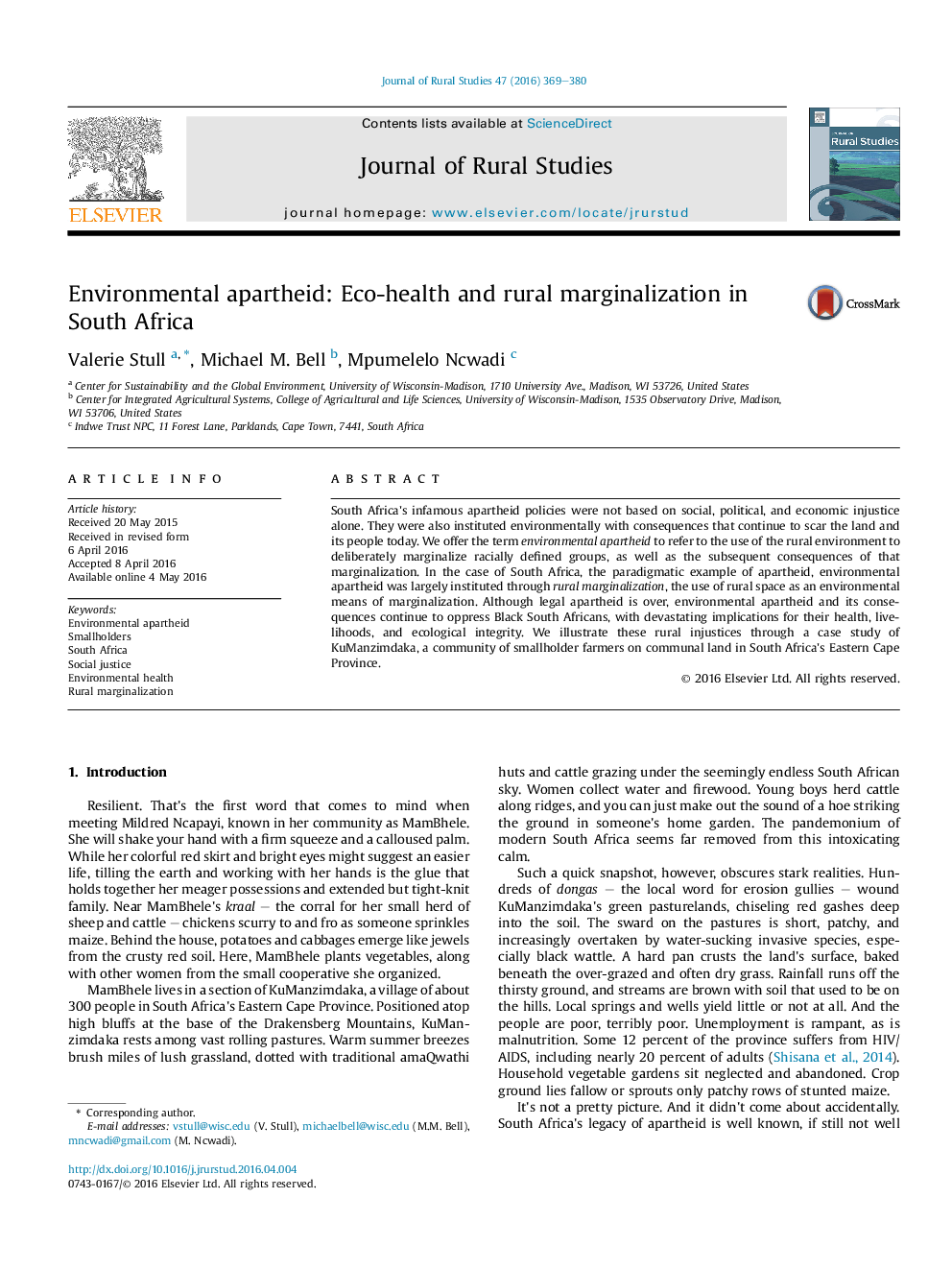| کد مقاله | کد نشریه | سال انتشار | مقاله انگلیسی | نسخه تمام متن |
|---|---|---|---|---|
| 6460212 | 1361825 | 2016 | 12 صفحه PDF | دانلود رایگان |
South Africa's infamous apartheid policies were not based on social, political, and economic injustice alone. They were also instituted environmentally with consequences that continue to scar the land and its people today. We offer the term environmental apartheid to refer to the use of the rural environment to deliberately marginalize racially defined groups, as well as the subsequent consequences of that marginalization. In the case of South Africa, the paradigmatic example of apartheid, environmental apartheid was largely instituted through rural marginalization, the use of rural space as an environmental means of marginalization. Although legal apartheid is over, environmental apartheid and its consequences continue to oppress Black South Africans, with devastating implications for their health, livelihoods, and ecological integrity. We illustrate these rural injustices through a case study of KuManzimdaka, a community of smallholder farmers on communal land in South Africa's Eastern Cape Province.
Journal: Journal of Rural Studies - Volume 47, Part A, October 2016, Pages 369-380
